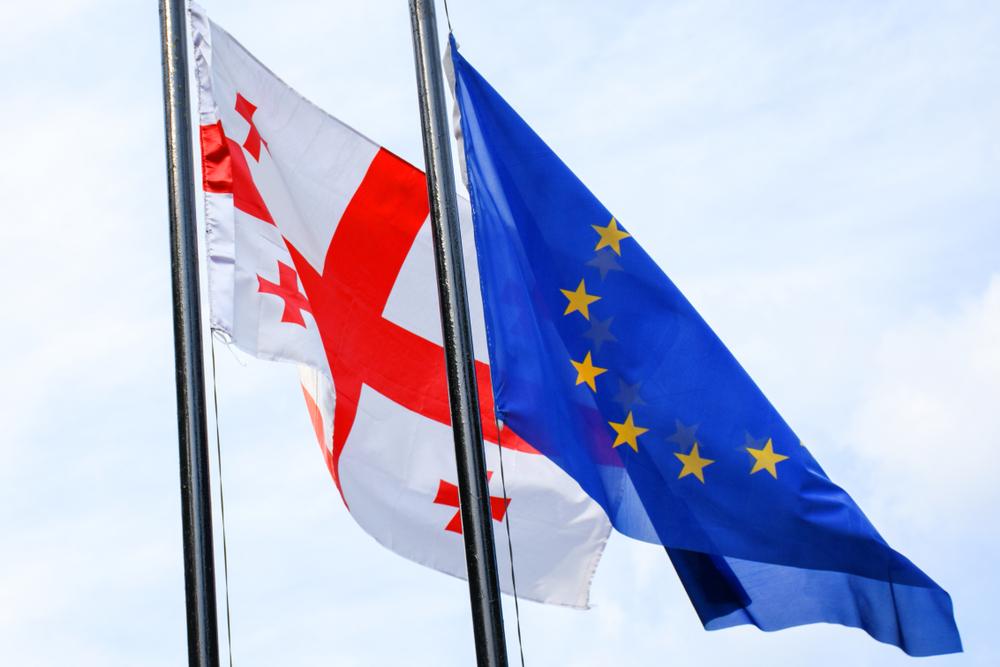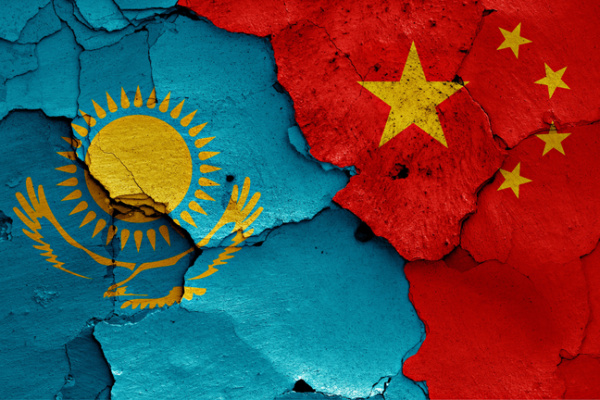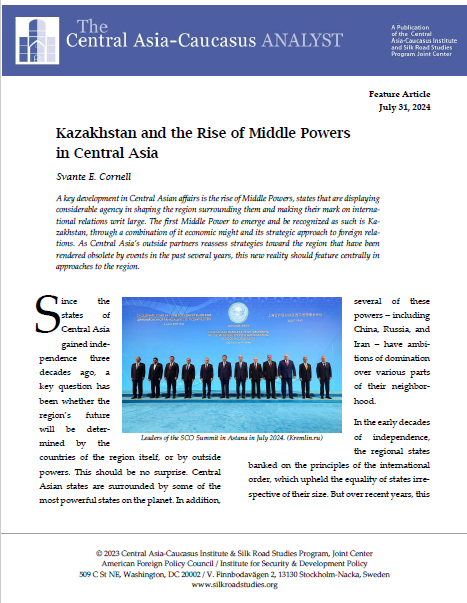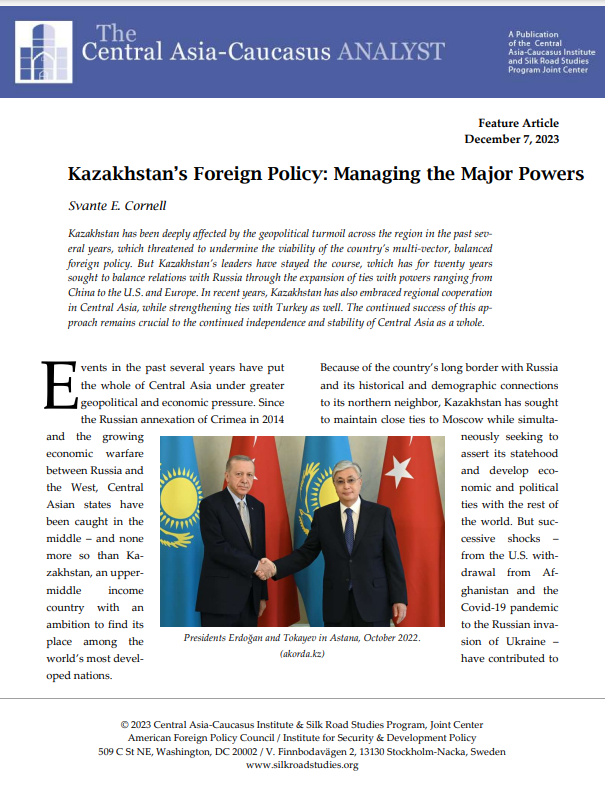Kazakhstan and the Rise of Middle Powers in Central Asia
Svante E. Cornell
July 31, 2024
A key development in Greater Central Asian affairs is the rise of Middle Powers, states that are displaying considerable agency in shaping the region surrounding them and making their mark on international relations writ large. The first Middle Power to emerge and be recognized as such is Kazakhstan, through a combination of it economic might and its strategic approach to foreign relations. As Central Asia’s outside partners reassess strategies toward the region that have been rendered obsolete by events in the past several years, this new reality should feature centrally in approaches to the region.
Russian Influence in Turkmenistan: Rapprochement or Pragmatism?
Slavomir Horak
January 19, 2024
Turkmenistan underwent a serious rapprochement with Russia in recent years, particularly after the establishment of a ruling tandem with Serdar Berdimuhamedow as a formal president and his father, Gurbanguly Berdimuhamedow, who retained significant influence in Turkmenistan’s domestic and foreign policy. Due to a few viable alternatives, Russia represents the balancing factor for Turkmenistan towards the increasing Chinese influence over the country and the principal supporter of the regime. On the contrary, Turkmenistan remains a loyal partner in the region for Russia, where the most significant players (Kazakhstan and Uzbekistan) expressed their cautious approach towards Russia's advance in Ukraine.
Kazakhstan’s Foreign Policy: Managing the Major Powers
By Svante E. Cornell
December 8, 2023
Kazakhstan has been deeply affected by the geopolitical turmoil across the region in the past several years, which threatened to undermine the viability of the country’s multi-vector, balanced foreign policy. But Kazakhstan’s leaders have stayed the course, which has for twenty years sought to balance relations with Russia through the expansion of ties with powers ranging from China to the U.S. and Europe. In recent years, Kazakhstan has also embraced regional cooperation in Central Asia, while strengthening ties with Turkey as well. The continued success of this approach remains crucial to the continued independence and stability of Central Asia as a whole.
Navigating Complex Choices: The EU's Dilemma With Georgia
By Kornely Kakachia
November 30, 2023
On November 8, the European Commission recommended granting candidate status to Georgia. The acceptance or rejection of these recommendations will be determined by a vote from the 27 EU member states in mid-December. If approved by the European Council, this decision would mark a significant milestone in Georgia’s extensive pursuit of European integration, reflecting the historical transformations occurring in the region. As the EU endeavors to anchor Georgia within its newly defined geopolitical sphere, the country is still required to address nine priorities, along with two additional conditions related to combating disinformation. These include countering anti-EU disinformation, foreign information manipulation, and interference against the EU’s values. Another pivotal condition for Georgia involves ensuring a closer alignment of its foreign policy with the EU’s Common Foreign and Security Policy (CFSP).

China Backs Kazakhstan Against Russian Threats
By Natalia Konarzewska
January 12, 2023
During his visit to Kazakhstan on September 14, China’s President Xi Jinping asserted that China supports Kazakhstan’s territorial integrity and independence, and opposes any interference in Kazakhstan’s internal affairs. Xi's remarks sounded like a thinly veiled warning to Russia. Moscow has ramped up its aggressive rhetoric against Astana over its refusal to support Russia’s military invasion of Ukraine, which Kazakhstan has interpreted as a possible Russian threat to its territorial integrity. China’s explicit support for Kazakhstan should also be considered against the backdrop of Russia’s recent military defeats in Ukraine, which have exposed multiple military weaknesses.






